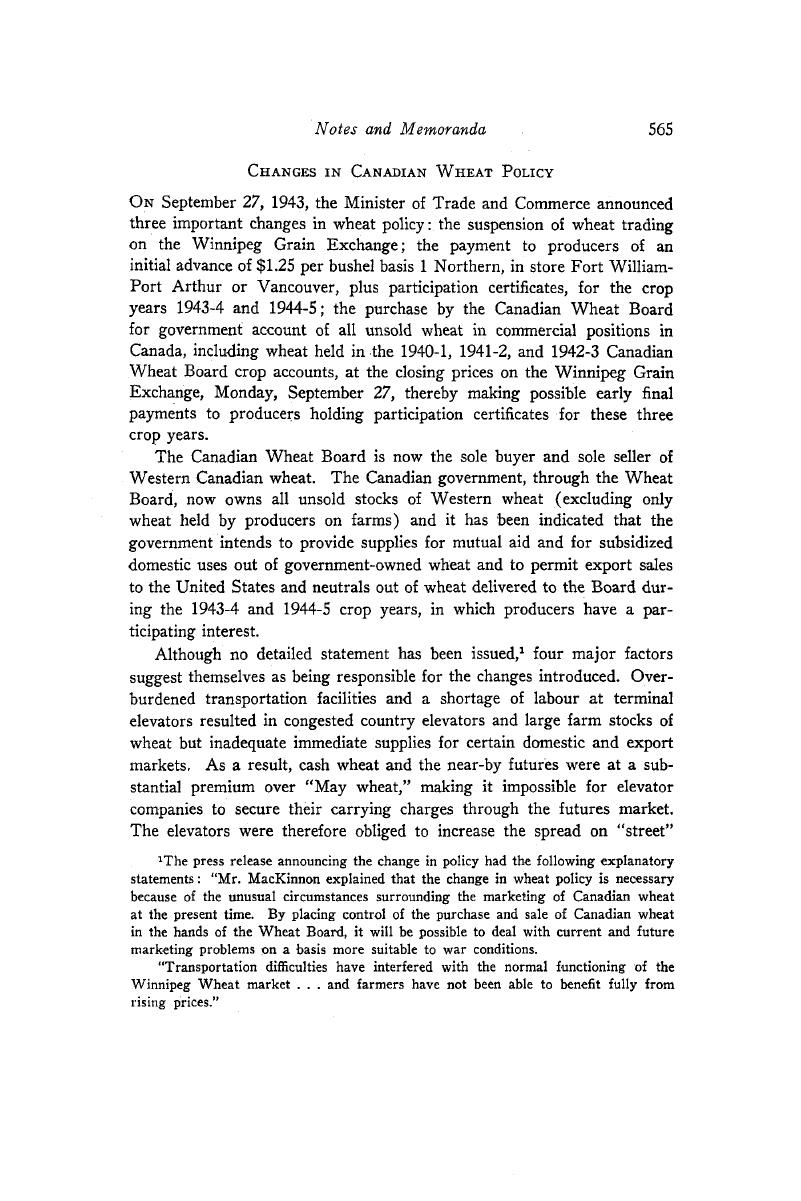No CrossRef data available.
Published online by Cambridge University Press: 07 November 2014

1 The press release announcing the change in policy had the following explanatory statements: “Mr. MacKinnon explained that the change in wheat policy is necessary because of the unusual circumstances surrounding the marketing of Canadian wheat at the present time. By placing control of the purchase and sale of Canadian wheat in the hands of the Wheat Board, it will be possible to deal with current and future marketing problems on a basis more suitable to war conditions.
“Transportation difficulties have interfered with the normal functioning of the Winnipeg Wheat market … and farmers have not been able to benefit fully from rising prices.”
2 Many wheat growers possessed a frozen asset in the form of a stock of wheat which could not be sold in 1942-3, even when the 15-bushel delivery quota was established. In realizing upon this asset, losses of varying degrees of severity will be incurred through spoilage due to inadequate, or, in many cases, no storage facilities, use or sale of the wheat as feed, and reduction of wheat acreage in 1943 in order to market the carried-over wheat within the delivery quotas established for 1943-4 without being able to divert this specialized wheat land to profitable alternative uses.
3 “If price control is to be made a dynamic part of governmental war policy, and not simply a sporadic response to public pressure, it must be linked to maximum rates of return for different industries. These rates can be adjusted from industry to industry according to the importance of each for the war effort, or a flat rate applicable to all industry could be determined. But unless some consideration is given to the question of how much industry shall be permitted to make, there is no basis for price-fixing” ( Adams, George P. Jr., Wartime Price Control, Washington, 1942, p. 137 Google Scholar).
In agriculture, where costs and rates of return are almost impossible to discover, reference must be made to the standard of living of those engaged in the industry. “Equality of sacrifice” and “political expediency” would require that no group whose efforts are necessary to the effective prosecution of the war should suffer a standard of living below that for producers in a position of comparable importance.
4 With the exception of rye which is still being traded freely; oats and barley are being traded at ceiling prices, all grades at the same price.
5 On October 1, the Canadian Wheat Board began paying an advance of 10 cents per bushel on oats, and 15 cents per bushel on barley, out of the Equalization Fund. See footnote 6.
6 Fees measuring the spread between Canadian export prices and United States prices of oats and barley which must be paid by the Canadian exporter to the Canadian Wheat Board. These sums are subsequently passed on to the producer by the Board.